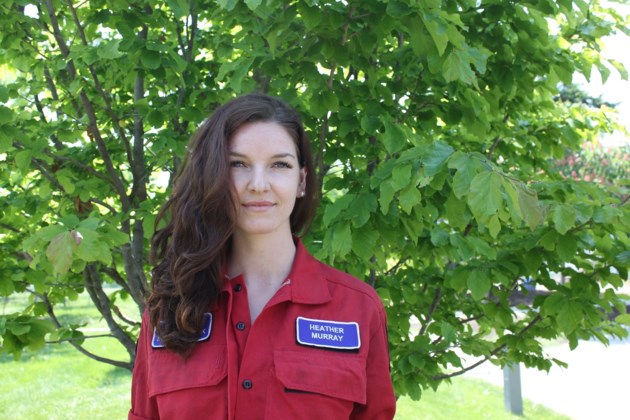Section outline
-
In Grades 6-9, students reflect on, self-assess, and set goals in personal competency development and determine their strengths and preferences as they explore career-life concepts such as identity, leadership, personal planning, and transferable skills. Students are introduced to increasingly diverse experiential learning opportunities and ways in which family, mentors, and community networks support their continued career-life development.
-
C3 (Career Curriculum Companion): Educated Citizens in an Ever-Changing World is a guide to support Career Education in all Curriculum areas through self-awareness, positive community engagement, and exploring possibilities.
-
The K-7 Career Education guide provides a thematic framework with curriculum connections, vetted resources, and suggested activities for K-3, 4-5, and 6-7.
-
The Career Education Guide provides a thematic framework to approach Career Education into everyday practice with curricular connections, suggested learning activities, and vetted resources.
-
Learning maps are an assessment tool that shows approaching, meeting, and exceeding abilities while providing numerous triangulation of assessment activities. Attached are Learning Maps for Grade 4-7 and 8-9 created by SD 73 Educators.
-
-
-
Big Life Journal has engaging resources that help students develop growth and resilient mindsets to face life's challenges with confidence. The site is organized by ages: 4-10 and 11+. Items are to be purchased but you can sign up for free weekly samples (see folder for samples) and you can listen to various thematic podcasts with your students.
-
Students will see fifteen sets of four pictures that show specific work activities to explore careers that best fit their personality (based on Personality types and the Holland Codes)
-
 The Canadian Foundation for Economic Education (CFEE) is a non-profit, non-partisan organization. It offers a wide range of programs for students and educators with a focus on focus – Career Development Capability, Financial Capability, Economic Capability, and Enterprise Capability.
The Canadian Foundation for Economic Education (CFEE) is a non-profit, non-partisan organization. It offers a wide range of programs for students and educators with a focus on focus – Career Development Capability, Financial Capability, Economic Capability, and Enterprise Capability. -
The Circle of Courage model provides educators with an evidence-based approach for teaching youth. This site also integrates research on positive youth development with Maslow's Hierarchy of Needs. Explore students' strengths (interests, values, and skills) and ask them to see where these strengths fit in the Circle of Courage. Extend on this by having students identify what strengths they would like to improve.
-
Common Sense Education has numerous Digital Citizenship lessons - free - that can be filtered by grade (k-12). This is an Amerian resource.
examples:
6 - Finding Balance in a Digital World
7 - The Power of Digital Footprints
-
The Core Competencies are sets of intellectual, personal, and social and emotional proficiencies, they are organized into three categories: communication, thinking, and personal and social. See Core Competency Self-assessment Templates for reflection tools to use in the classroom.

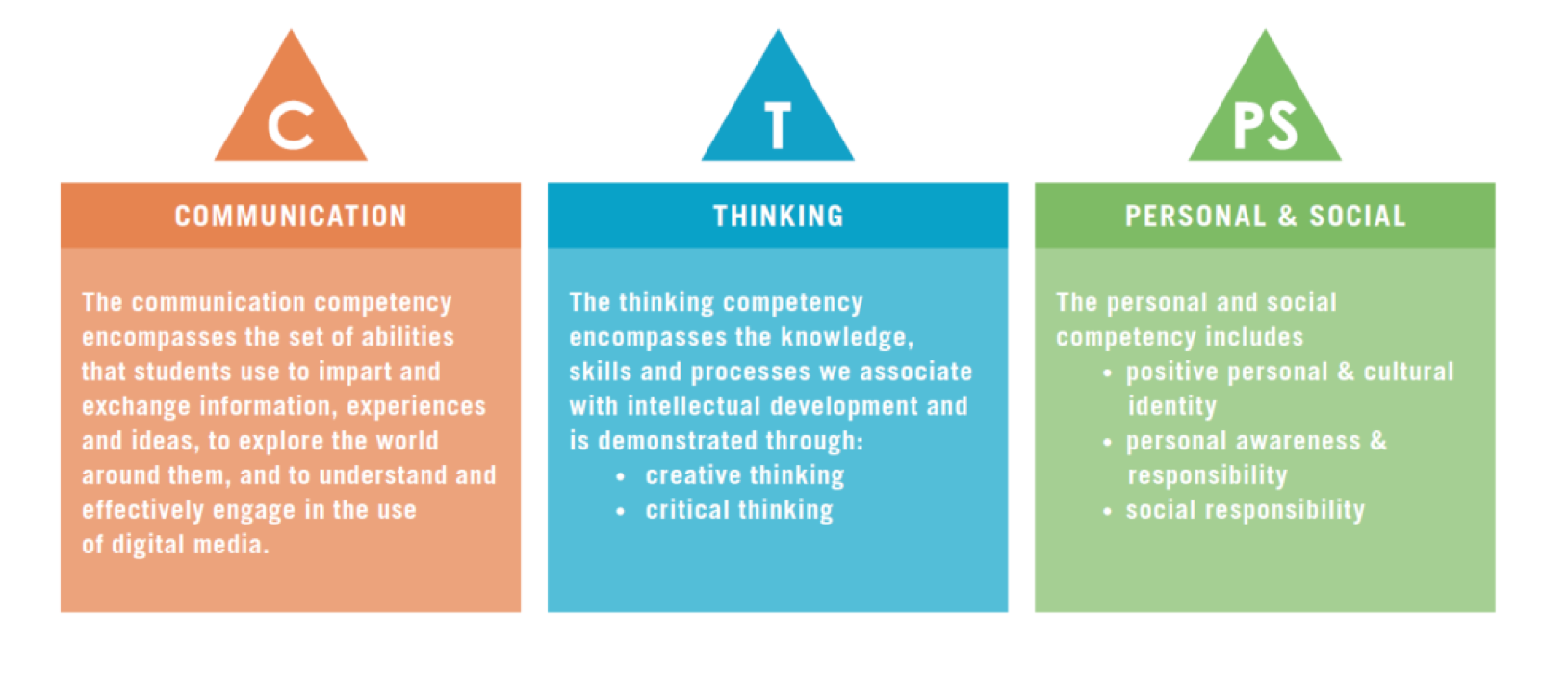
-
Employability skills are the skills you need to enter, stay in, and progress in the world of work. This profile can be used as a framework for dialogue and action. Employability Skills (The Conference Board of Canada).
-
The Critical Thinking Consortium under Generate Creative Ideas has lessons in both French and English: Imagine "What if?", Imagining by drawing analogies, Imagining design possibilities through shape, Imagining through a superhero's powers, Imagining through design components, Imagining through exaggeration, Imagining through the senses.
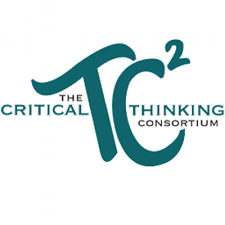
-
Carol Dweck compares fixed and growth mindsets. This model shows that intelligence can be developed. As a result, higher levels of achievement can be obtained. This is an overarching skill that supports career development. There is a Mindset Assessment (mindsetworks) but names and e-mails are required for results.
Angela Lee Duckworth Grit: The power of passion and perseverance (6 minute Ted Talk)
-
Career Headlines from Career Solutions Publishing has several free sample lessons.
For example: Becoming a Skilled Collaborator asks students to take a good, strong look at themselves to identify what they do best in a team situation, and what they do less well so they can improve.
-
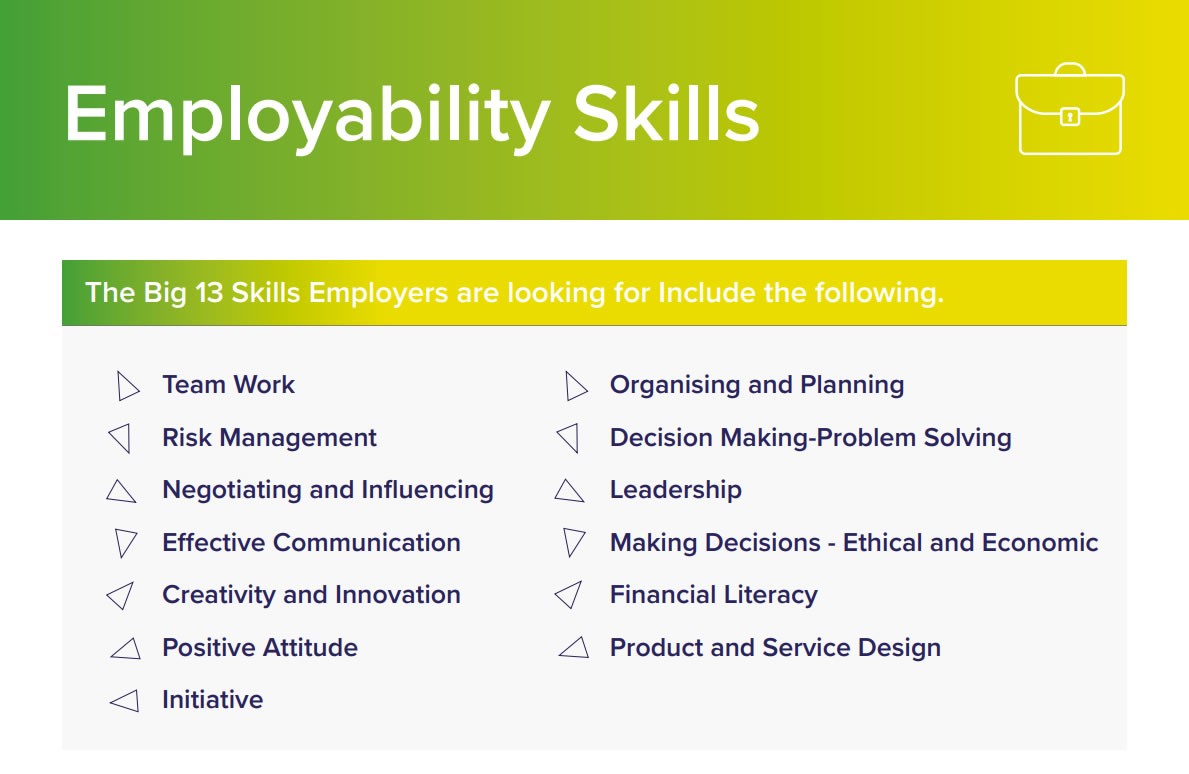
Learning Employability Skills through Challenges, grade 6-9, is a hands on interactive activity. Students are asked to learn and reflect on their employability skills through two challenges: the tower challenge and build a bridge challenge. From NWC
-
This personality test looks to see if you are an artist, thinker, adventurer, maker, producer, dreamer, innovator or visionary. It takes less than ten minutes, with very artistic and entertaining animation that connects to answers, it is free and you do not have to sign up.
-
My Dependable Strengths is an assessment tool that provides a visual of students' strengths. Start by asking students totalk about something they accomplished in their life that they were proud of or enjoyed doing. Herky Cutler Engaging Client Assessment Tools That Rock (2017)
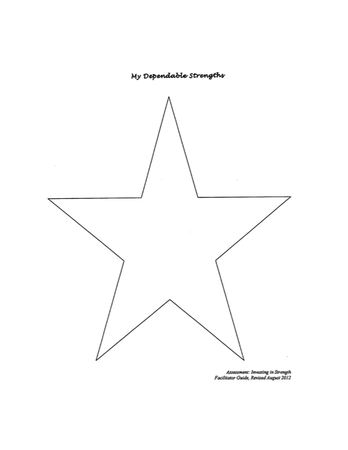
-
"Engaging with a song that moves your client emotionally can reveal surprising insights about their interests, values and passions"
 Herky Cutler,Career Practionioner
Herky Cutler,Career Practionioner -
Critical Thinking Consortium has ten lessons on Relating to others in both English and French: Empathic, Finding another perspective, Identifying leadership qualities, Independent mindedness, Inside someone's head, Listening and learning from Elders, Point of view, Rate of individual significance, Selecting actions to strengthen relationships.

-
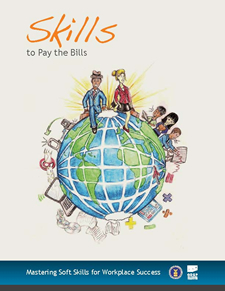 Skills to Pay the Bills, grades 6-9,explores soft skills and interpersonal skills that students need to succeed. They include communicating clearly and appropriately, remembering work directions, working well with others, and knowing how to solve problems. This resource has numerous ready-made-lessons that focus on the following skills:
Skills to Pay the Bills, grades 6-9,explores soft skills and interpersonal skills that students need to succeed. They include communicating clearly and appropriately, remembering work directions, working well with others, and knowing how to solve problems. This resource has numerous ready-made-lessons that focus on the following skills:- Communication Skills
- Enthusiasm and Attitude
- Teamwork
- Networking
- Problem Solving and Critical Thinking
- Professionalism
-
-
 The Stigma-Free Society is offering tool kits to educators to promote wellness for Grades 4-7 and 8-12. Kits include documentary videos, mental health topics and personal stories, and interactive components for youth. Career Education learning standards are identified in numerous lessons.
The Stigma-Free Society is offering tool kits to educators to promote wellness for Grades 4-7 and 8-12. Kits include documentary videos, mental health topics and personal stories, and interactive components for youth. Career Education learning standards are identified in numerous lessons. -
 Inspired by the book, You Hold Me Up, students take photos of each other and then superimpose words that represent the many positive traits each student brings with them into the classroom community. (Core Competency Illustration)
Inspired by the book, You Hold Me Up, students take photos of each other and then superimpose words that represent the many positive traits each student brings with them into the classroom community. (Core Competency Illustration)
-
-
-
Explore Careers that didn't exist before and the skills connected to them. This article lists 5 new in-demand career options for STEAM and tech-savvy students to consider: genetic counsellor, nuclear medicine technologist, sustainability manager, drone operator, and data miner.
-
Shout Outs Friendly Fridays
Sharing Acts of Kindness Paper Tweets
Class Norms Group Salutes
Morning Meeting Appreciation, Apology, Aha
Rose and Thorn Snowball Toss
-
The Faculty of Engineering and Applied Science at Queens and Aboriginal Access to Engineering have resources for kids and teachers that explore what engineers do. For example, there are learning modules, types of engineering, role models in engineering,
or order free comic books that describe different types of engineers.
-
This high-energy series redefines what it means to be smart. It shatters the myth that to be smart you need to have a high IQ, be a math whiz or trivia buff. Instead, the show works on the Theory of Multiple Intelligences. In every episode, hopefuls battle it out in front of a live studio audience in six categories of smarts: musical, physical, social, logical, visual and linguistic. All episodes are available in CBC Curio database. Also check out Canada's Smartest Person - Junior
-
Career Education and the Sustainable Development Goals (SDGs) support learning that imagines career-life futures. The Career Education and the SDGs pdf PowerPoint has lessons from K-3 'People in our Neighbourhood' and 4-7 'Walk, work and Wonder', and Grade 8-12 'Community Asset Mapping' that connect curriculum learning with SDGs.

-
Career Explorations is organized by interests and then sample careers linked to the Occupational Outlook Handbook which has written summaries and corresponding videos.
-
Career Girls is founded on the dream that every girl around the world has access to diverse and accomplished women role models to learn from their experiences and discover their own path to empowerment. This website explores specific careers as well as career clusters while role modelling accomplished women within career clusters.
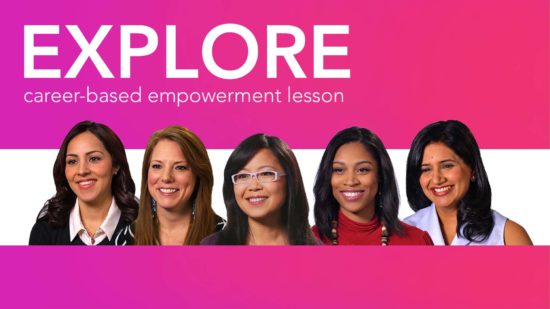
-
An ongoing series about innovative projects in the developing world, a partnership between Canada's International Development Research Centre and Canadian Geographic. Explore how careers are created to solve current issues.
-
Role-Plays designed to demonstrate the value of being specific in communication to others and in what is received from others. A rationale, curricular links, and assessment are described in this lesson. This is the sample lesson provided by the Ministry of Education by Audrey Milne.
-
Reading Level: Gr. 6-7 Interest Level: Gr. 5-9+
This innovative series opens readers’ eyes to the endless possibilities of design thinking— an iterative process that employs a human-centered approach to problem solving, and emphasizes empathy, collaboration, and innovative thinking. Each title focuses on open-ended topics related to social change. Case studies, hands-on learning, and question prompts encourage readers to engage meaningfully with key concepts. -
Edge Factor has engaging videos and interactive activities that help students explore careers and build self-awareness. This is a paid resource but there are some free resources.
-
Eye Wonder excites students with interesting facts and just plain fun! The series explores science and integrates technology, while focusing on various careers. The videos are less than 10 minutes and are filmed through the eyes of the cameraman, D.V. This resource is recommended for Grade 4-9 and is American based.
Teacher resources are available.
-
Fortis BC has lessons for 6-9 that explore community through the lens of sustainable energy BC. There are also grade 6-7 and 8-9 lessons that focus on natural gas and safety. This folder has a sample used for each grade, for the full lesson visit Fortis BC - for free.
Grade 6:-7: Natural Gas Safety
Grade 7: Climate Change: Community Climate Walk (can be used in grade 6)
Grade 8-9: Natural Gas Safety
Grade 9: Our place, our energy, our future (can be used in grade 8)
-
Kamloops Fire Centre Career Clusters - Explore real people in real careers within the BC Wildfire Service. This was a two-week series on Kamloops Fire Centre by Tereza Verenca, Kamloops Matters.
-
Let's Talk Science has a Careers section to connect learning to real people and their careers. There are numerous profiles, teacher resources, and competitions linked with Chatterhigh.
-
Mapping electoral districts promotes positive community engagement and links to geography and numeracy.
-
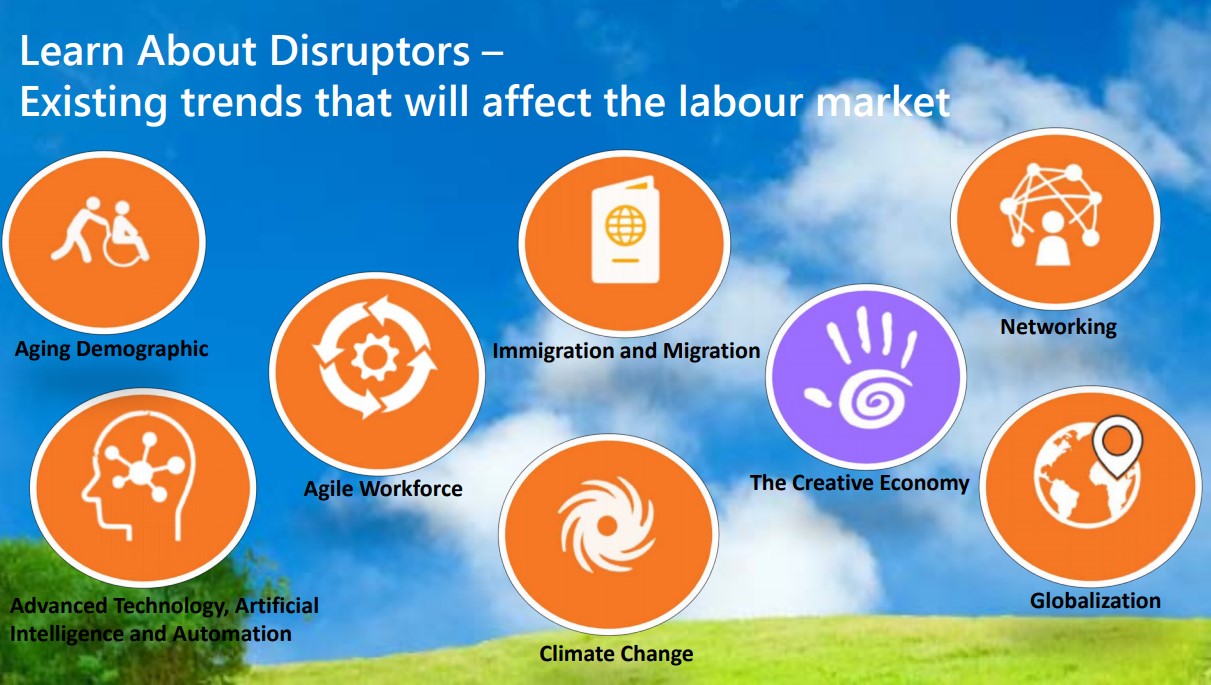 An inquiry project for students that explores the labour market around 6 Career Clusters: Sales and Service; Trades, Agriculture, Processing and Manufacturing; Arts, Culture, Sport and Fitness; Business, Administration and Science; Health; and Education, Community and Social Services, Law.
An inquiry project for students that explores the labour market around 6 Career Clusters: Sales and Service; Trades, Agriculture, Processing and Manufacturing; Arts, Culture, Sport and Fitness; Business, Administration and Science; Health; and Education, Community and Social Services, Law.The second part explores the worlds disruptors: Aging Demographic; Agile Workforce; Immigration and Migration; Advanced Technology, AI and Automation; Climate Change; Globalization; Networking; Creative Economy
-
News in Review. Curio.ca features News in Review, Canada's premier current-event series for the classroom. Hosted by the CBC reporter Michael Serapio, News in Review is the only resource that gives students the opportunity to delve into today's most important events as they unfold. Each story also comes with a teacher resource guide that teases out key concepts and questions. Curio.ca is part of SD 73 digital databases.
-
Our Hidden Heros, from The Critical Thinking Consortium, focuses on contributing to the classroom and school community, valuing diversity rights and responsibilities. The attached pdfs are free sample lessons for 5-6, 7-8, the full resource can be purchased at The Critical Consortium. The resources for 5-6 focuses on the impact of a positive attitude and 7-8 focuses on the 'ripple effect' of making small personal changes in attitudes and actions.
-
BLS has created our own periodic table! Instead of elements, we have used Science, Technology, Engineering and Math (STEM) occupations. Each occupation is connected to the Occupational Outlook Handbook (U.S. Bureau of Labor Statistics).
-
The most important qualification for becoming a scientist is curiosity. Step inside the fascinating world of today’s working scientists and discover how questions get answered. Each book examines the great variety of scientific work within a particular field. Processes and practices are explored, with an emphasis on the creative and collaborative aspects of the work. Mini-bios highlight the work of current scientists from all over the world, and hands-on investigations create authentic learning experiences. Each book includes a look at the future of the field and provides practical suggestions for readers to take an active role to further their learning. Reading Level: Gr. 5 Interest Level: Gr. 5-8+
Kits are available at Henry Grube Learning Centre
-
Bjoerk, Dr Seuss, Whoopi Goldberg, Andy Warhol, Ellen MacArthur, Greta Gerwig, Andrea Bocelli, Hua Mulan ... these are men and women who all dared to be different.
Boys will be boys and girls will be girls - or so the meaningless saying goes. Because what if you're a girl and you like cage fighting? Or you're a boy and you love ballet? And what if you've always dreamed of being a scientist but you can't see anyone who looks or sounds like you, and who has left a legacy - in the form of microscopes and Bunsen burners - for you to follow?
This is the book for children who want to know about the lives of those heroes who have led the way, changing the world for the better as they go.Also try
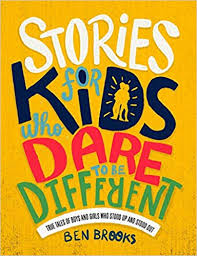 and Good Night Stories for Rebel Girls
and Good Night Stories for Rebel Girls -
Take Action topic packs are real-world inquiries for grades 4-6. They include a 32-page magazine-style book for students, anchor videos, and Teacher's Guide, and is designed for whole-class study with students working in small groups. Recommended topics are:
The Media Effect
Community Cares
Lead the Way
In Our Hands
-
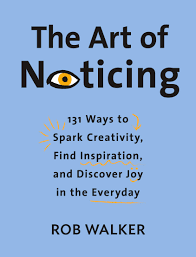 The Art of Noticing: 131 Ways to Spark Creativity, Find Inspiration, and Discover Joy In the Everyday presents a series of exercises and prompts and games and things you can actually do (or reflect upon) to build attention muscles or just get off your phone and enjoy noticing stuff that everyone else missed.
The Art of Noticing: 131 Ways to Spark Creativity, Find Inspiration, and Discover Joy In the Everyday presents a series of exercises and prompts and games and things you can actually do (or reflect upon) to build attention muscles or just get off your phone and enjoy noticing stuff that everyone else missed. -
Give students a plan a party/ take on a challenge/task/world problem to solve. Ask them who they would like to have on their team? Justify why? Reflect, what does this tell you about who you like to work with? Does this change with a new prompt?
-
Turn and Face the Strange: Changes impacting the future of employment in Canada explores major trends in Canada: technological change, glob
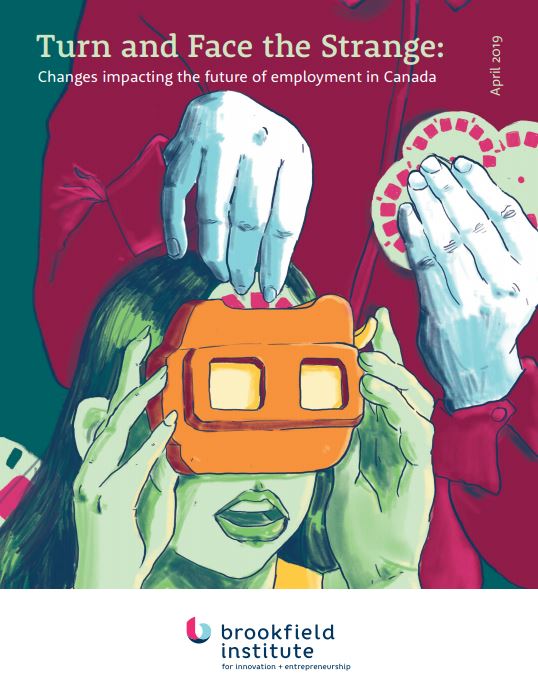 alization, demographic change, environmental sustainability, urbanization, increasing inequality, political uncertainty. Brookfield Institute (2019)
alization, demographic change, environmental sustainability, urbanization, increasing inequality, political uncertainty. Brookfield Institute (2019) -
Use this list as an inquiry into career clusters to think about how STEM supports all career fields. This is a teacher resource link from EVERFI.
- Fashion Designer
- NHL Programming Coordinator/Coach
- Flavor Technologist
- Zoologist
- Data Scientists for Music Apps/Websites
-
Visual Capitalist has hundreds of infographics, charts, and visualizations that connect big ideas around one universal theme: “What are the fundamental forces driving the future of business and investing? Larger umbrella topics are markets, technology, money, healthcare, energy, mining, green, politics and featured companies. Use these graphics to learn about community, consumption, culture, environment...and more!
-
Career Trek has 137 career videos that are around 5 minutes long. Career videos are also organized into National Occupation Codes and can be searched by skills.
-
Working in Canadian Communities has four texts to explore with inquiry questions and further learning. The Henry Education Centre has all four texts (sets of 8) as inquiry packs.
Working in Canadian Communities Inquiry Question Further Resources Jobs in Canadian Cities by Diane Bailey Why do people live in cities?
Why are some types of jobs located there?The Canadian Atlas Online
Canadian Geographic Games
Kidport
Kids World TravelJobs in Rural Canada by Todd Kortemeier What are some of the rural jobs near your area?
How are they different from jobs in other areas of CanadaCanadian Forestry Association: Kids Corner
Knowitall.org: Exploring Careers
Natural Resources Canada: Welcome to the Kids' ClubJobs in Suburban Canada by Todd Kortemeier What jobs are available in a suburb near you?
What makes them different from jobs in other suburbs?Canadian Geographic Kids
Knowitall.org: Exploring Careers
National Geographic Kids: CanadaJobs in Small Town Canada by Samantha S. Bell What are some jobs in a small town that are connected to the environment?
How are these jobs different from those in a small town in another region?Canadian Geographic Kids
Kids' Stop: Indigenous and Northern Affairs Canada
National Geographic Kids: Canada
-
-
-
Blackline Masters:
Connecting interests to career clusters.
Connecting skills to career clusters through pride stories.
Connecting values to career clusters, list of core values to use as prompts.
Blank circle career cluster web
-
Career Development Elementary Curriculum Guide 2017, Newfoundland Labrador

-
This is a free demo for Career Solutions publishing Career Launcher which introduces students to 300 careers across 16 clusters through career pathways, academic subjects, and levels of education.
-
The Lean Canvas moves from self exploration activities to career-life planning actions. It encourages students to to identify a problem to explore while pursuing a career path. Designed by: A. Magnifico
-
Careers: The Graphic Guide to Finding the Perfect Job for You explores career clusters with illustrative tables that illustrate the realities of the job, such as location, lifestyles and skills needed. Two sets of eight are available at the Henry Grube Education Centre. Explore this guide with a connect-extend-challenge. Grades 8-12.
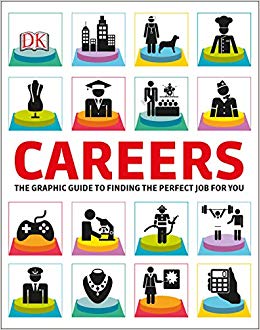
-
Have students explore 5 careers that they are connected to through their interests, values, and skills. Blend this into math charting skills and have them 'chart their career paths by salaries'. See Chart Your Path (Everfi).
-
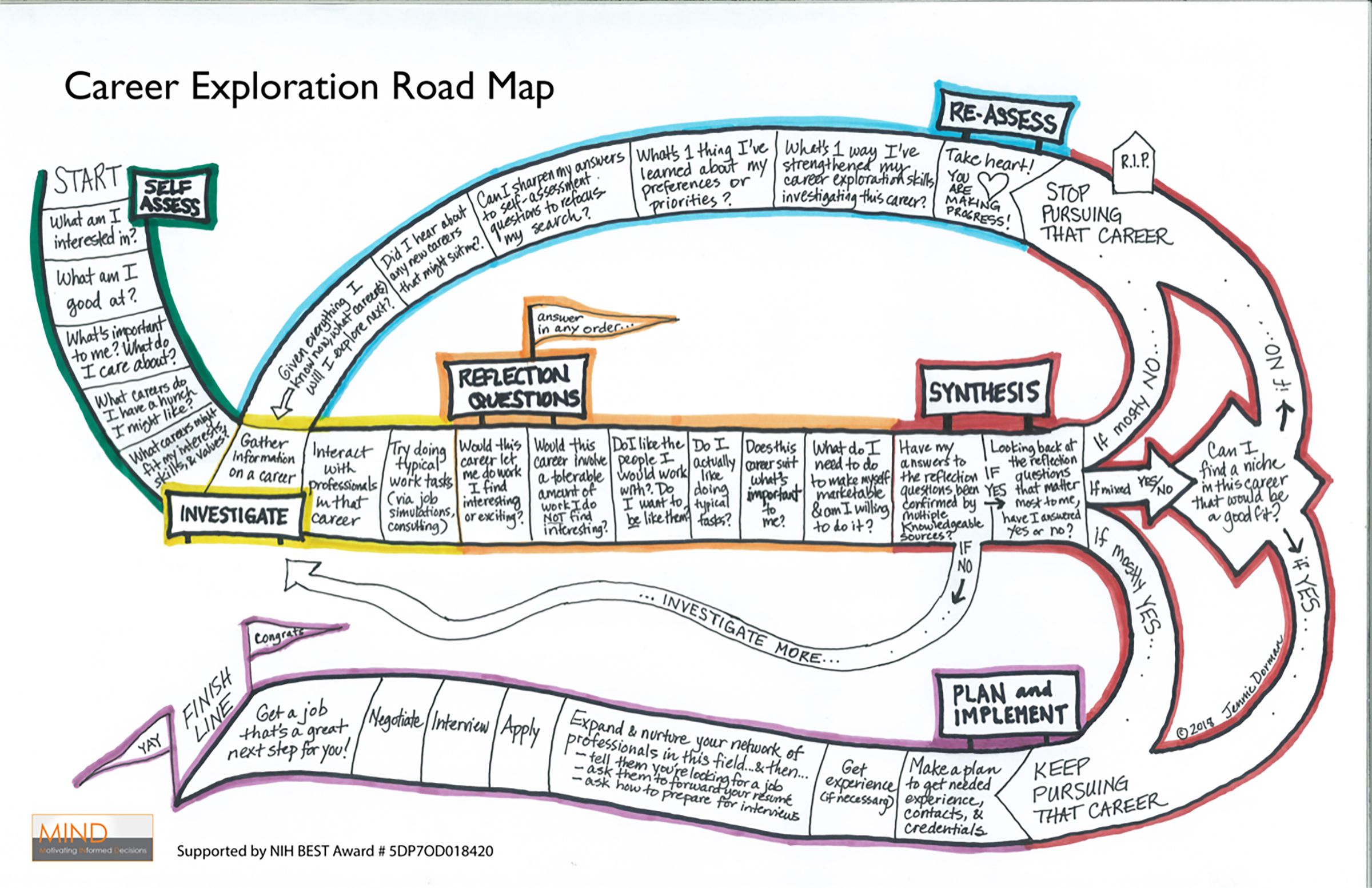 This Career Exploration Road Map was designed to break down the process of career exploration into manageable and actionable steps in a gameboard-style schematic. By Jennie Dorman and the UCSF Motivating Informed Decisions Program.
This Career Exploration Road Map was designed to break down the process of career exploration into manageable and actionable steps in a gameboard-style schematic. By Jennie Dorman and the UCSF Motivating Informed Decisions Program. -
Game of Life has both traditional careers (teacher, doctor, lawyer) and new career choices (singer, inventor, scientist). This classic game challenges students to experience all sorts of unexpected adventures - the journey of life.
Extension: Have students make their own version with careers they investigate and twists in life's journey that they inquire about.
-
Grow BC is a resource designed for teachers to show K-12 students the diversity of our province’s commodities and the importance of BC’s agriculture industry. It includes topics for straightforward integration into class curriculum. Teachers were directly involved in developing Grow BC to ensure its effective
use.
-
This Teacher Guide from the Ministry of Education in Alberta is for Grades 4, 5, and 6. The guide
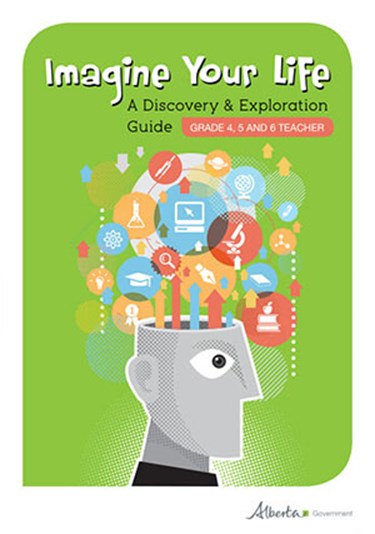 helps students to explore the world of learning and work, and encourages students to keep exploring opportunities as they continue through school through four steps:
helps students to explore the world of learning and work, and encourages students to keep exploring opportunities as they continue through school through four steps:1) Who are you?
2) What is out there?
3) How do you get ready for the future?
4) What can you do right now?
This publication can be ordered online or downloaded at alis.alberta.ca/publications
-

Check out the numerous resources such as the Maker Club Playbook, the Light Up Cards and Taking Making Into Classrooms Ocean Tool Kits. These are great activities that allow students to apply and explore skills that tradespeople use.
-
 Business of Our Own, grades 6-8, helps students identify the key success factors needed to turn personal and team performance into profit. Building on basic business concepts like the different types of organizations, the role of management, and production and marketing, students learn how to run a successful retail business of their own. This program is four 1 hour lessons and a sales day. Book through JA.
Business of Our Own, grades 6-8, helps students identify the key success factors needed to turn personal and team performance into profit. Building on basic business concepts like the different types of organizations, the role of management, and production and marketing, students learn how to run a successful retail business of their own. This program is four 1 hour lessons and a sales day. Book through JA.Key program outcomes
- Understand business goals
- Practice skills to run a business
- Develop and implement a business plan for their own retail business
- Identify the role of promotions
- Understand the role of financial record keeping
- Discuss product pricing
- Describe their experience in operating a business
- Draw conclusions about planning and running a business by analyzing their experience
-
 Dollars with Sense, grades 7-9, provides students with personal money management skills and challenges them to apply these concepts in their own lives. This is a free program delivered by a qualified business volunteer in four 1 hour sessions. Book through JA
Dollars with Sense, grades 7-9, provides students with personal money management skills and challenges them to apply these concepts in their own lives. This is a free program delivered by a qualified business volunteer in four 1 hour sessions. Book through JAKey Outcomes
- Develop a money management self-profile
- Choose appropriate forms of exchange
- Determine factors that influence their spending
- Identify steps in being a SMART consumer
- Calculate the cost of credit
- Develop awareness about consumer rights
- Identify needs, wants and financial goals
- Prepare a budget
- Differentiate services offered by financial institutions
- Demonstrate how to write a cheque
- Identify types of fraud and the protection needed
- Identify different ways to invest
-
 Economics for Success, grades 8-10, encourages students to consider how they can prepare to enter the world of work by helping them map career clusters, consider post-secondary options, create a personal budget and develop strategies to achieve their goals. This program is four 1 hour sessions. Book through JA.
Economics for Success, grades 8-10, encourages students to consider how they can prepare to enter the world of work by helping them map career clusters, consider post-secondary options, create a personal budget and develop strategies to achieve their goals. This program is four 1 hour sessions. Book through JA.Key Outcomes
- Learn why it’s important to stay in school and explore post-secondary options
- Gain an understanding of what life is like after high school
- Map their interests, skills, and passions to possible careers
- Learn how to network, identify a mentor, and create a strong personal brand
- Create a budget to prepare for the financial reality of post-secondary life
- Develop strategies that will help them achieve their goals
-
Mississippi Department of Education has provided K-12 Career Lessons with full unit and lesson plans for all ages.

-
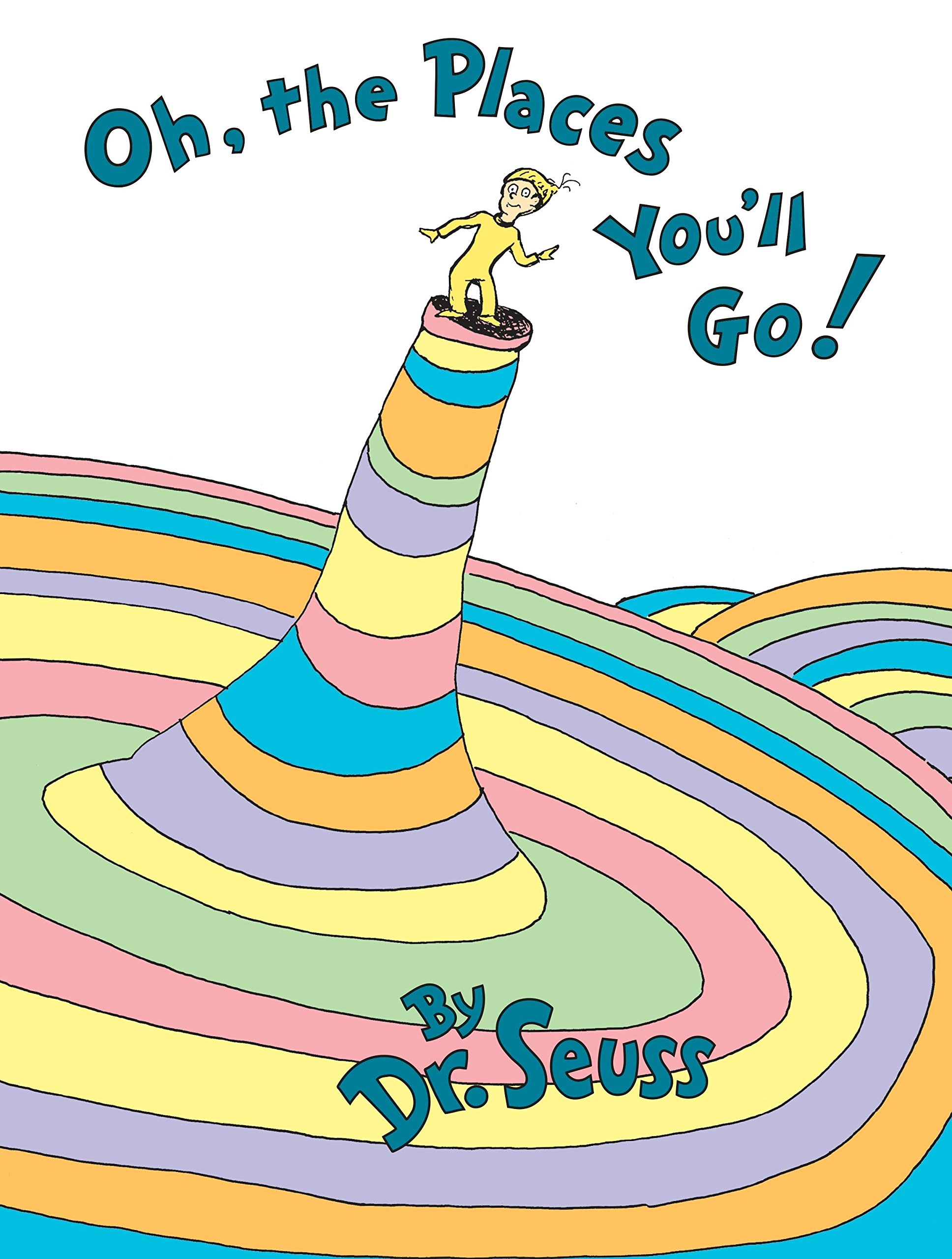 Dr Seuss' masterful story "Oh, The Places You'll Go!" instructs readers to moving forward in life and overcoming challenges. Ideal for any age this book has been a guide to graduates of Kindergarten through college and remains a great advisor to many adults (6 minutes).
Dr Seuss' masterful story "Oh, The Places You'll Go!" instructs readers to moving forward in life and overcoming challenges. Ideal for any age this book has been a guide to graduates of Kindergarten through college and remains a great advisor to many adults (6 minutes). Suggested activity: Look at the theme. How does it connect with where you are at right now in your life? How can you connect the messages to career-life planning?
-
The Thinking Consortium has 7 lessons that provide strategies students can use when preparing to act (this can be planning and self-awareness): Analyze solutions, Cause and consequence, Clarify a problem, Dealing with ambiguity, Explore options, Rate the decision, State the problem.

-
Explore how you can use the Sustainable Development Goals to examine interests and passions, as well as careers that make the world a better place. This Toolkit has both elementary and secondary resources and ideas which lets educators see how Sustainable Development Goals can be used K-12.
-
-
Would you rather choose THIS: Join a Viking festrival, or THAT: Join a voodoo festival? Welcome to This or That?, a wacky book of choices where every answer brings you one step closer to discovering the hidden YOU.
From National Geographic Kids, SD 73 Destiny - Gale Resources for teachers

-
There are 16 Career Cluster videos. This is the introductory video (MODeptof Education).
-
WorkBC has a collection of valuable resources to complement the important work that teachers and career counsellors already do in their classrooms, whether in person or online.

-
